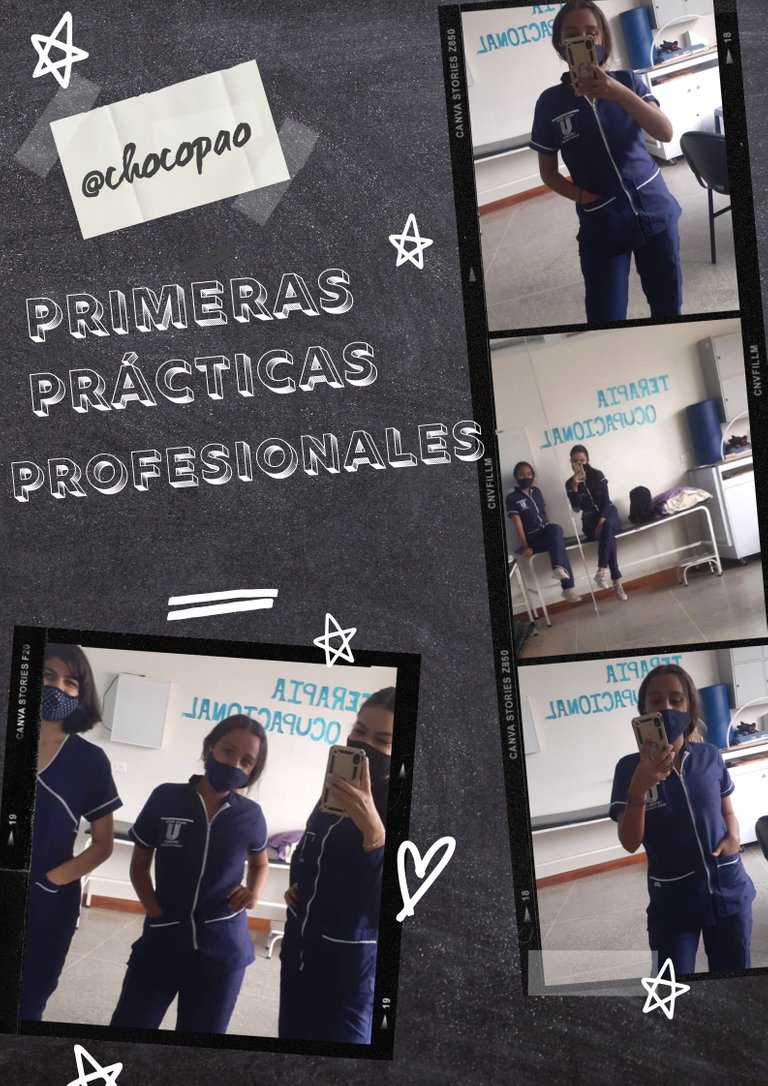
Hace semanas hice mis primeras practicas profesionales pero antes de empezar a contarles al respecto, me gustaría hablarles un poco de que se trata mi carrera..
Weeks ago I did my first internship, but before I start telling you about it, I would like to tell you a little bit about my career.
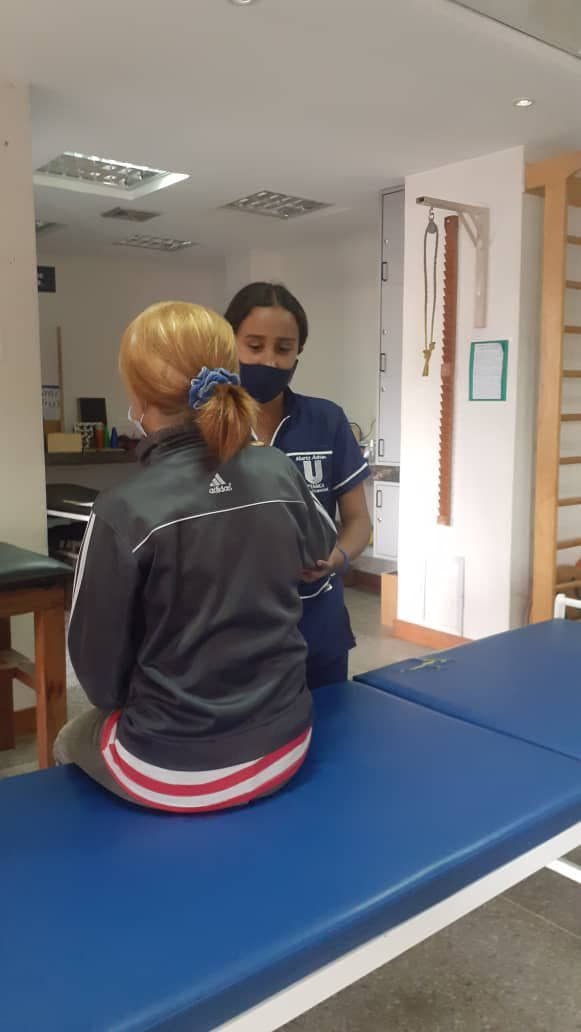
“Es una profesión sanitaria regulada en la L.O.P.S. (Ley de ordenación de las profesiones sanitarias, que a través de la valoración de las capacidades y problemas físicos, psíquicos, sensoriales y sociales del individuo, pretende, con un adecuado tratamiento, capacitarle para alcanzar el mayor grado de independencia posible en su vida diaria, contribuyendo a la recuperación de su enfermedad y/o facilitando la adaptación a su discapacidad”
Link del texto
"It is a health profession regulated in the L.O.P.S. (Law of organization of health professions, which through the assessment of the capabilities and physical, mental, sensory and social problems of the individual, aims, with appropriate treatment, to enable them to achieve the highest degree of independence possible in their daily lives, contributing to the recovery of their disease and / or facilitating adaptation to their disability."
Link to text
Básicamente la terapia ocupacional consiste en ayudar a una persona a alcanzar su máxima independencia mediante actividades terapéuticas. No suena tan difícil ¿no? pero no es tan fácil como parece.
Básicamente la terapia ocupacional consiste en ayudar a una persona a alcanzar su máxima independencia mediante actividades terapéuticas. No suena tan difícil ¿no? pero no es tan fácil como parece.
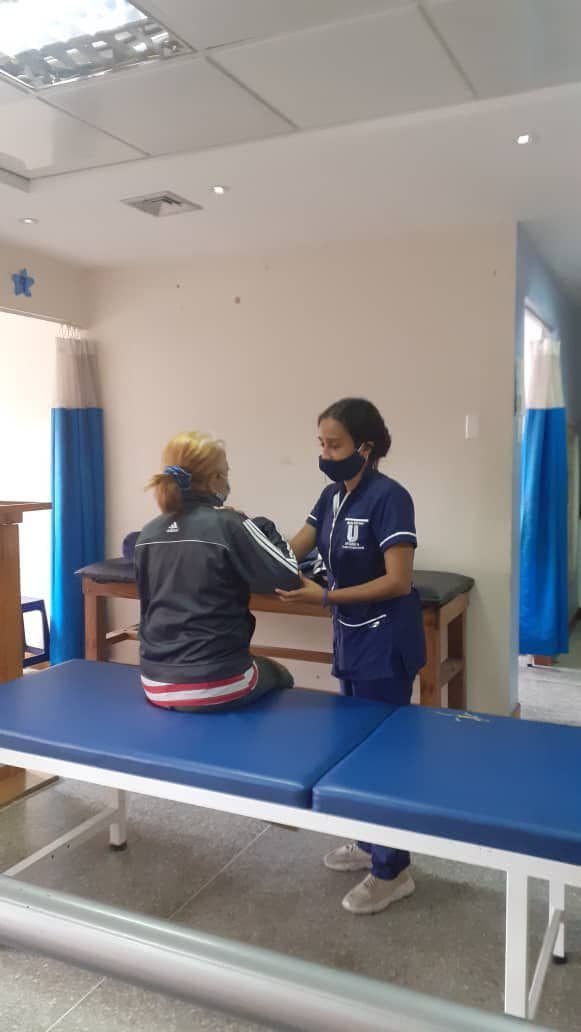
Los terapeutas ocupacionales son los profesionales mas comprensivos y atentos que he podido observar, porque no solo atienden por atender, si no que conectan de una manera tan bonita con los participantes gracias a su manera tan especifica de evaluar y atender las necesidades que presente que te llena de amor de solo verlo.
La principal preocupación de un terapeuta es que el participante pueda volver a realizar las actividades significativas que realizaba antes de asistir a terapia por ende, la pregunta mas importante que se hace es la siguiente: ¿Que es lo que le gustaría lograr con la terapia?. ¿A que nos referimos con esto? se lo responderé con una anécdota que viví durante esas semanas.
Occupational therapists are the most caring and attentive professionals I have ever observed, because they do not just attend for the sake of attending, but they connect in such a beautiful way with the participants thanks to their very specific way of assessing and attending to the needs they present that it fills you with love just to see it.
The main concern of a therapist is that the participant can return to the meaningful activities he/she did before attending therapy, therefore, the most important question to ask is the following: **What would you like to achieve with therapy? What do we mean by this? I will answer with an anecdote that I experienced during those weeks.
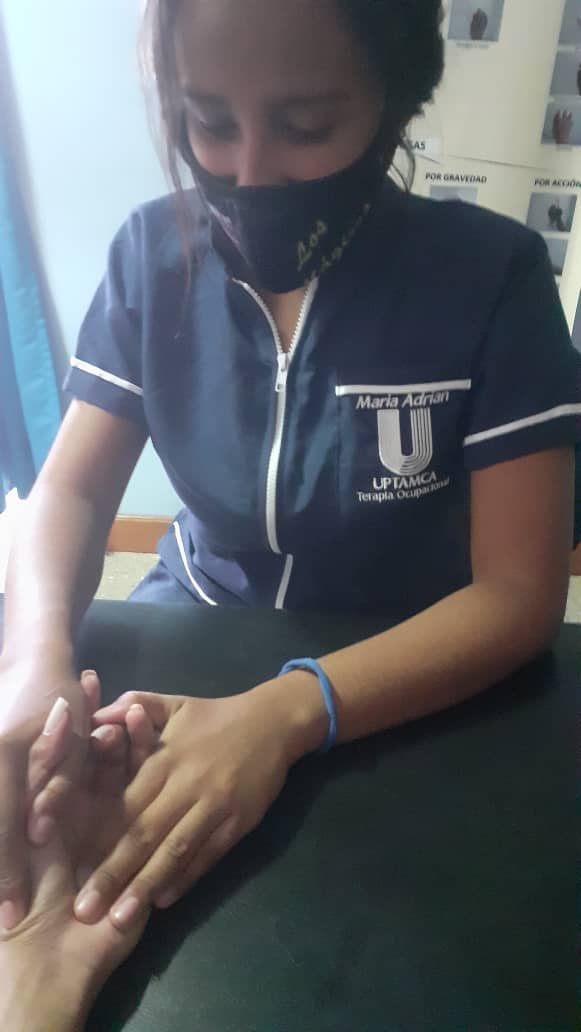
En el grupo al que le toco asistir esas dos semanas estábamos dos chicas y yo, nuestra terapeuta guía nos asigno a cada una un participante en especifico y cada uno presentaba una patología distinta. En mi caso, me toco atender a un señor que había tenido un accidente en su trabajo con una calandra (es una maquina que utilizan los herreros) afectando así su dedo indice y medio.
Durante la evaluación física pudimos notar que el hombre había perdido fuerza y le era imposible realizar un puño cerrado, le temblaba la mano así que debíamos comenzar ya mismo para que su recuperación fuera rápida. Luego de eso, procedí con la otra parte de la evaluación que vendrían siendo unas preguntas mas personales, entre ellas ¿Que es lo que le gustaría lograr con la terapia? el señor sin dudarlo me respondió: Volver al trabajo, es lo que me mantiene activo y me hace feliz ya que no me gusta estar encerrado en casa.
In the group that I had to attend those two weeks there were two girls and me, our therapist guide assigned each one of us a specific participant and each one presented a different pathology. In my case, I had to attend to a man who had had an accident at work with a calender (a machine used by blacksmiths) affecting his index and middle finger.
During the physical evaluation we could notice that the man had lost strength and it was impossible for him to make a closed fist, his hand was shaking so he should start right away so that his recovery would be fast. After that, I proceeded with the other part of the evaluation which would be more personal questions, among them: What would you like to achieve with the therapy? The man answered without hesitation: Return to work, it is what keeps me active and makes me happy because I do not like to be locked up at home.
Lo que mas me hizo feliz de toda esta experiencia es que al final de las dos semanas, el señor pudo volver al trabajo muy feliz y nos agradeció mucho el haberlo ayudado. Esta pregunta que realizamos, es la mas importante ya que de la respuesta que nos da el participante es de donde nos guiamos para que el pueda tener la mayor independencia posible, sin ninguna traba.
What made me most happy about this whole experience is that at the end of the two weeks, the man was able to return to work very happy and thanked us very much for helping him. This is the most important question we ask, since the answer given by the participant is where we are guided so that he can have as much independence as possible, without any obstacles.
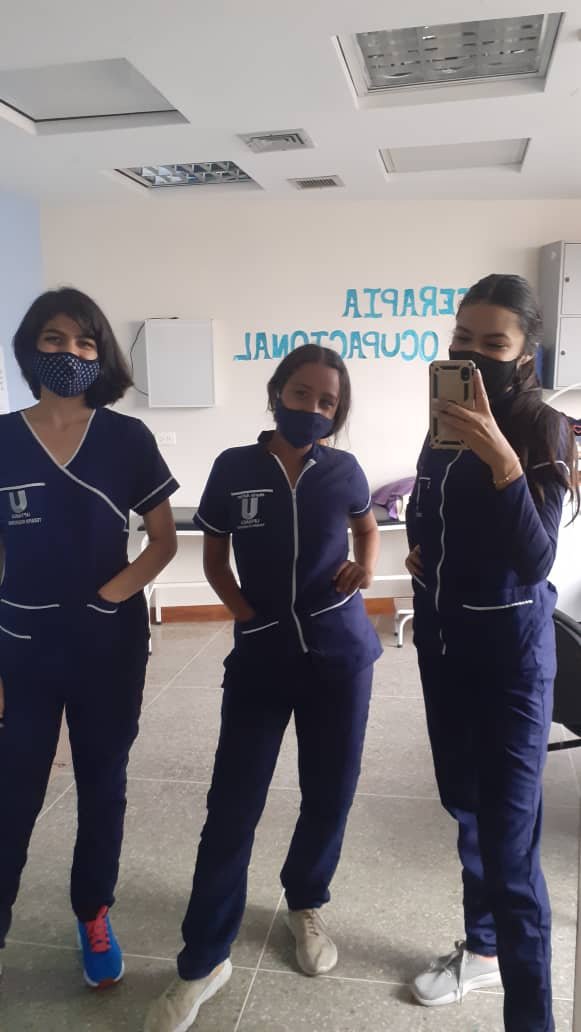
Portada y banner editados en Canva
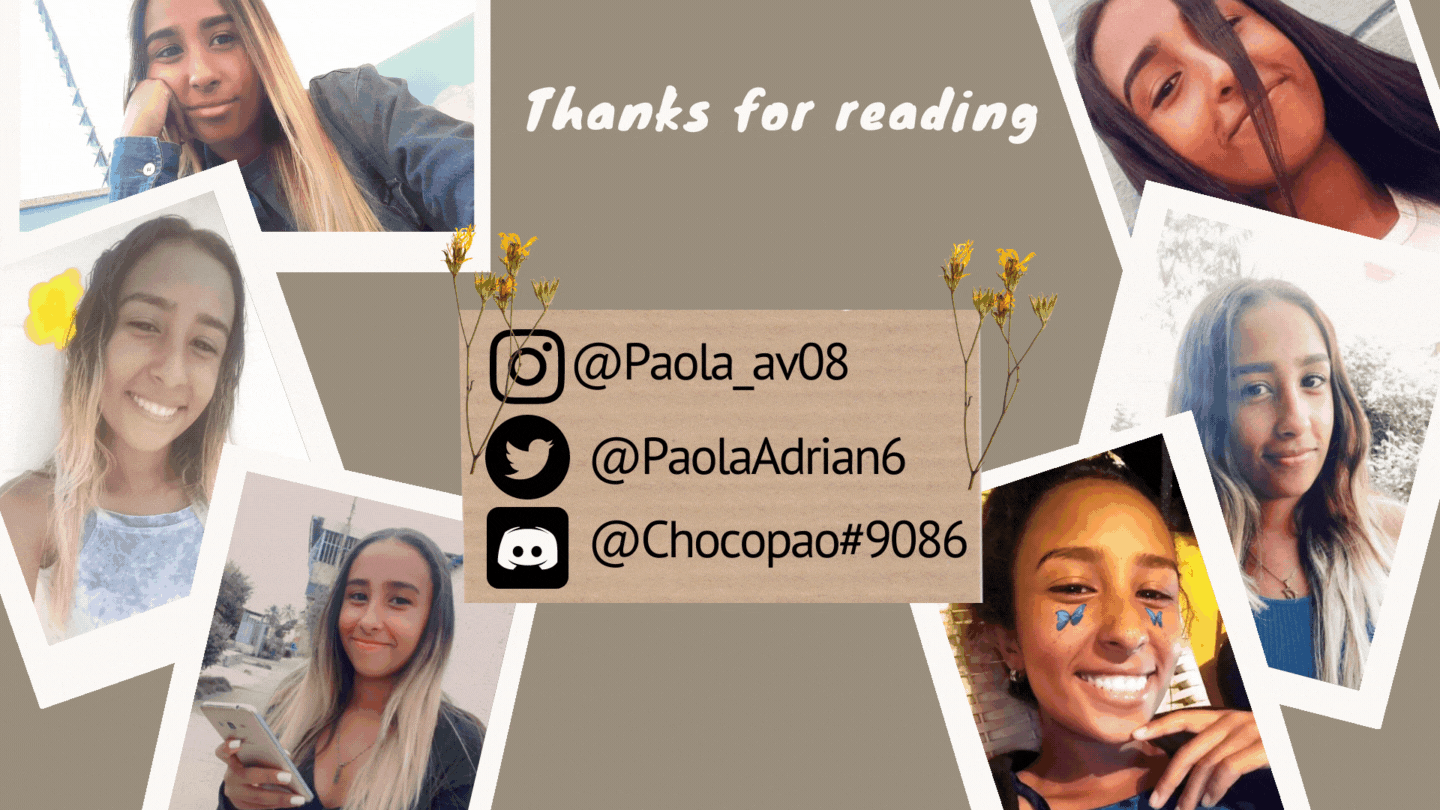
I've been in nursing care for almost 20 years, Health care work has been challenging, at times difficult, but many times satisfying as well as rewarding.
Thanks for sharing @chocopao 💉💊🛏
Posted using Dapplr